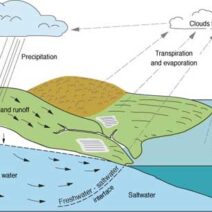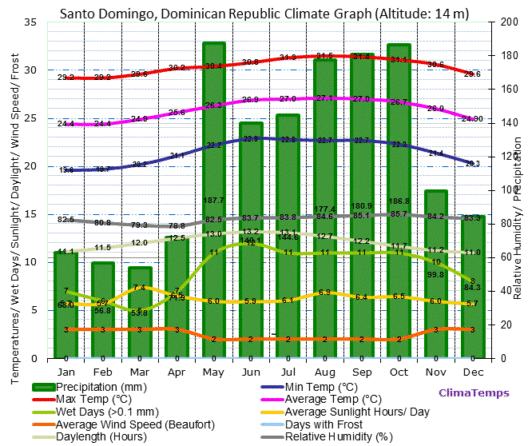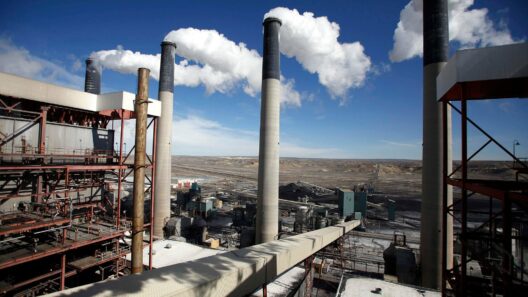CO₂ and the Deep Blue: How Oceans Are Absorbing the Planet’s Problems
The vastness of Earth’s oceans often evokes a sense of awe and mystery. These deep blue expanses cover more than 70% of the planet’s surface and house an extraordinary diversity of life. While many gaze upon these waters with fascination, a more sobering reality lurks beneath the surface. The oceans are not just a scenic backdrop; they play a critical role in regulating the Earth’s climate. In particular, they serve as a vast reservoir for carbon dioxide (CO₂), absorbing a significant portion of the greenhouse gases emitted through human activities. This article delves into the mechanisms through which oceans absorb CO₂, the implications of this phenomenon, and the broader context of climate change, thereby highlighting the convoluted relationship between human progress and environmental stability.
The oceans have absorbed approximately 30% of the carbon dioxide released into the atmosphere since the industrial revolution, a figure that underscores their significance as a buffer against climate change. This absorption occurs primarily through a process known as gas exchange. When CO₂ enters seawater, it reacts with water to form carbonic acid, which subsequently dissociates into bicarbonate and carbonate ions. This conversion contributes to the oceans’ role as a carbon sink, but it also provokes a series of chemical reactions that can influence marine ecosystems.
Interestingly, the oceans’ ability to absorb CO₂ is not limitless. Various factors, such as temperature and oceanic circulation patterns, can influence the rate of absorption. Warmer waters, for instance, hold less gas, which diminishes the oceans’ efficacy as a carbon sink. As global temperatures rise due to climate change, this phenomenon could have dire consequences. The delicate balance that allows oceans to absorb CO₂ efficiently is at risk, raising concerns about the long-term sustainability of this natural process.
Moreover, the absorption of CO₂ has significant repercussions for marine ecosystems. The increased levels of carbonic acid result in ocean acidification, which poses a severe threat to calcifying organisms such as corals and shellfish. These species rely on carbonate ions to form their shells and skeletons, and lowering the availability of these ions hampers their growth and survival. Coral reefs, often described as the “rainforests of the sea,” are especially vulnerable to acidification, leading to coral bleaching and the subsequent loss of habitat for countless marine species.
The repercussions of ocean acidification extend beyond the individual species affected. Coral reefs and other marine ecosystems provide essential services, including coastal protection, fisheries support, and tourism revenue. The degradation of these ecosystems not only threatens biodiversity but also strains the economic livelihoods of communities dependent on marine resources. Consequently, the health of the oceans has direct implications for human well-being, linking environmental integrity to economic stability.
Furthermore, the question of the oceans as carbon sinks raises ethical considerations. As we continue to emit greenhouse gases, the reliance on oceans to absorb excess CO₂ shifts attention away from reducing carbon emissions at the source. It invites a dangerous complacency, suggesting that nature might bear the brunt of human excess. This mindset must be challenged as we grapple with the reality that preserving ocean health is vital for climate resilience. Mitigating climate change requires concerted efforts to curtail emissions while also implementing strategies to protect and restore marine ecosystems.
Addressing the multifaceted issues of ocean health and carbon sequestration calls for integrative approaches that encompass science, policy, and community engagement. Scientific research continues to shed light on the complexities of marine systems and the impacts of climate change, paving the way for informed decision-making. Regulatory frameworks must evolve to prioritize sustainable practices, including responsible fishing, habitat protection, and pollution mitigation. Additionally, engaging local communities in stewardship initiatives fosters a sense of ownership and responsibility toward marine environments.
Furthermore, fostering public awareness is imperative. Educational campaigns can illuminate the vital role of oceans in carbon cycling and encourage individual and collective actions that contribute to marine conservation. By understanding the intrinsic connection between human activities and ocean health, society can cultivate a culture of accountability toward our natural environment.
In parallel, innovative solutions are gaining traction, such as “blue carbon” initiatives that focus on the preservation and restoration of coastal and marine ecosystems. Mangroves, salt marshes, and seagrasses are recognized for their remarkable ability to sequester carbon. Investment in such solutions not only enhances carbon storage capabilities but also supports biodiversity and provides economic benefits through fisheries and tourism.
Ultimately, the relationship between CO₂ and the deep blue oceans signifies a complex interplay of natural processes and human impacts. As oceans continue to absorb the consequences of our carbon emissions, it is crucial to recognize their limitations and vulnerabilities. The fate of our oceans is inextricably linked to climate change, making it imperative that we adopt a holistic perspective when addressing these issues. Protecting ocean health is not merely an environmental concern—it is an essential component of safeguarding our collective future on this planet.
In summary, the deep blue seas serve as both a refuge and a reminder of the environmental challenges we face. As we venture further into the 21st century, understanding and respecting the oceans’ role in mitigating climate change will be pivotal. We must acknowledge that the oceans are absorbing more than just carbon; they are absorbing the repercussions of human choices and the urgent need for action. The time to act is now. The health of our oceans—and, by extension, the health of our planet—depends on it.








